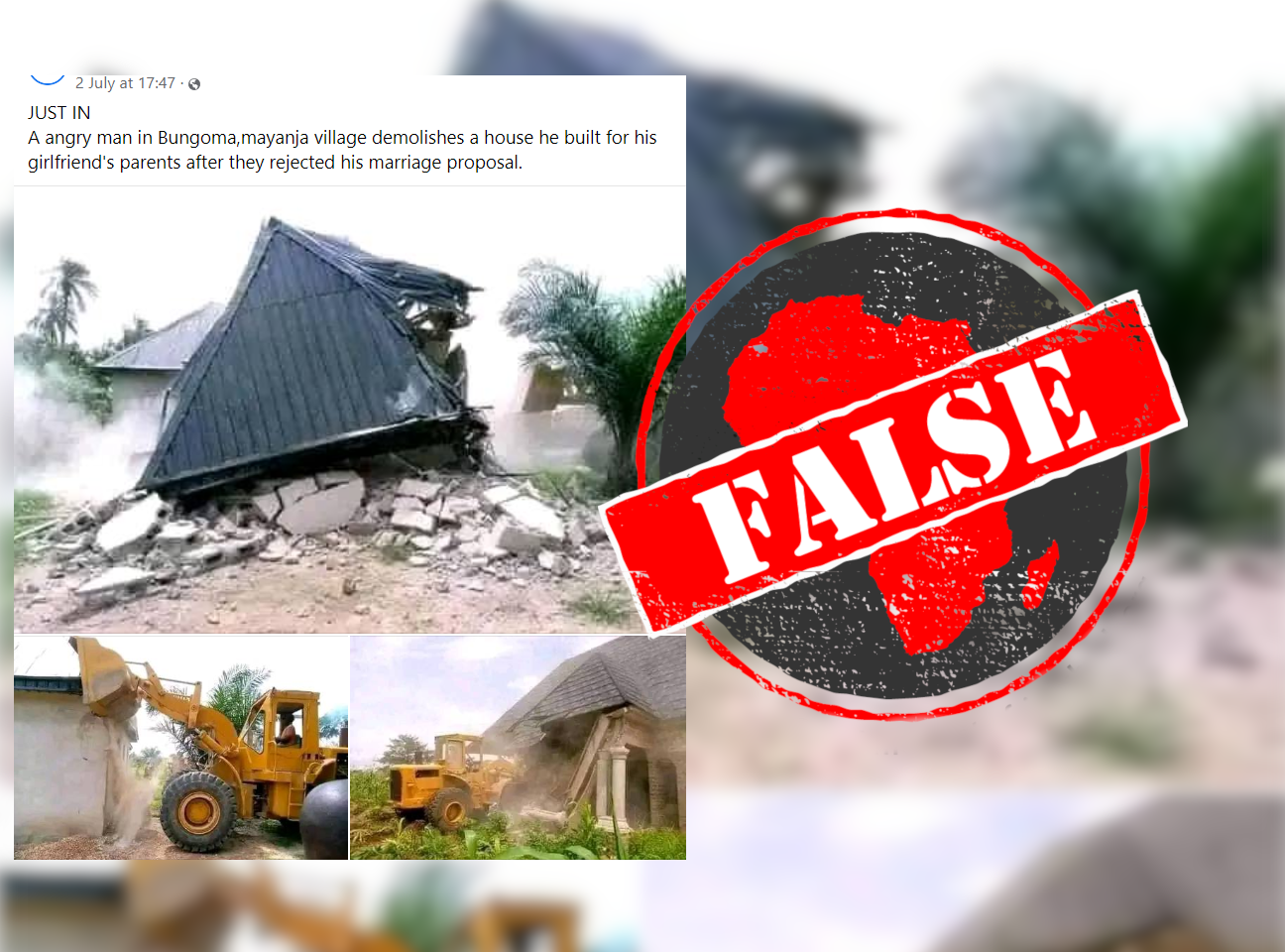IN SHORT: Posts circulating online claim a man demolished a house in Kenya after his would-be in-laws rejected his marriage proposal. If believed, they could fan negative stereotypes and attitudes.
Photos posted on Facebook in July 2023 show a demolition machine ripping through the wall and roof of a house.

“An angry man in Bungoma demolishes a house he built for his girlfriend's parents after they rejected his marriage proposal,” reads the text accompanying some of the photos.
Bungoma is a county about 400 kilometres west of Kenya’s capital, Nairobi.
Other Facebook posts claim the photos show a house demolished in Kilifi, a county on Kenya’s Indian Ocean coastline.
But others claim the demolished house is in Busia county, about 450 kilometres northwest of Nairobi.
Some Facebook users applauded the man's actions, while others pointed out that it could be an "anger problem".
Given the wide reach of the posts, these claims could mislead those who believe them. They could also promote negative stereotypes about certain communities in Kenya, such as the Luhya people who live in Bungoma and the Mijikenda people who live in Kilifi.
Stereotypes about different communities and cultures are widespread in Kenya, as are patriarchal views, discriminating against women.
The claim has also been published here, here, here, here, here, here, here and here.
But do the photos show a house being demolished in Kenya in July 2023, and by a man whose marriage proposal was turned down? We checked.
Photos taken in Nigeria in 2021
A reverse image search of one of the photos led Africa Check to news articles published in June 2021.
They were published by Nigerian news websites, which reported on the demolition in Benue state here and here.
The BBC also published the photos on its vernacular Facebook pages in Nigeria here and here.
“Benue State Government has demolished two houses allegedly belonging to a kidnapper named Aondofa Cephas Chekele. The government says it has taken this step as a warning to those who are hindering peace in the state,” the post reads.
The photos were credited to Akume Raphael. They were not taken in Kenya.
Republish our content for free
For publishers: what to do if your post is rated false
A fact-checker has rated your Facebook or Instagram post as “false”, “altered”, “partly false” or “missing context”. This could have serious consequences. What do you do?
Click on our guide for the steps you should follow.
Publishers guideAfrica Check teams up with Facebook
Africa Check is a partner in Meta's third-party fact-checking programme to help stop the spread of false information on social media.
The content we rate as “false” will be downgraded on Facebook and Instagram. This means fewer people will see it.
You can also help identify false information on Facebook. This guide explains how.


Add new comment